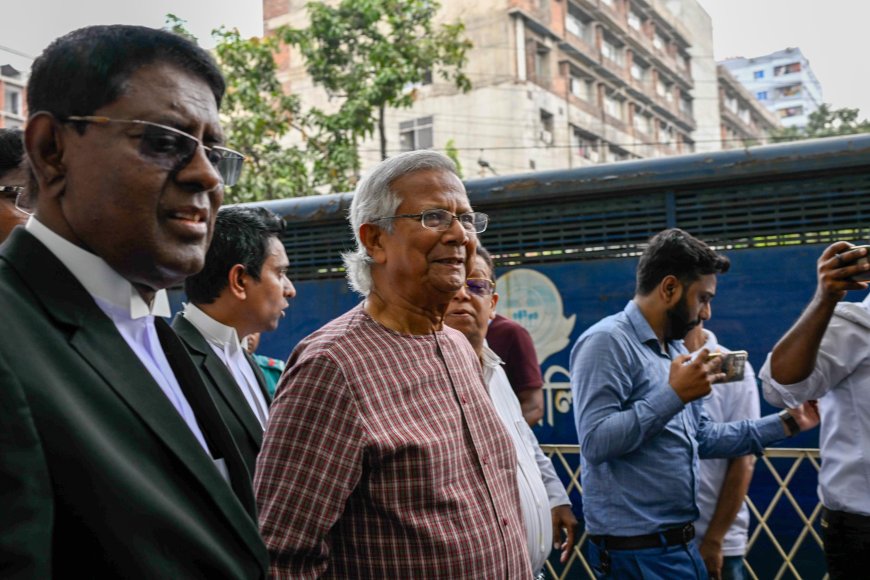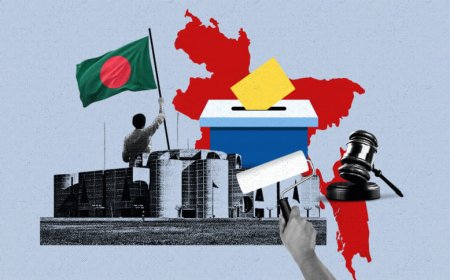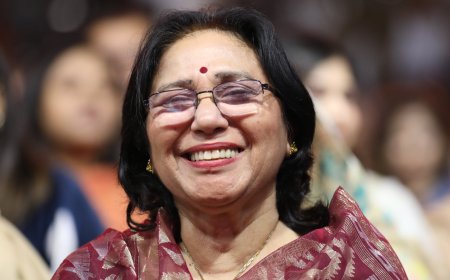BNP becomes increasingly anxious as Yunus' reform agenda delays Bangladesh's parliamentary elections until 2026
As the caretaker government extends beyond the anticipated three months, political parties are concerned about an indefinite transition and are calling for a clear timeline

The next parliamentary election in Bangladesh is unlikely to occur before early 2026. The caretaker government led by Muhammad Yunus has made it clear that elections will not be held until proposed reforms aimed at cleaning up the system are completed. However, political parties are pushing for earlier elections and urging the government to expedite the reform process.
Regardless of whether the election is delayed by two years or held sooner, there are concerted efforts to disqualify former Prime Minister Sheikh Hasina and many leaders of the Awami League from participating in future elections. This means that not only will Hasina be barred from forming a government again, but her party will also face obstacles in contesting elections or positioning itself as a significant opposition force.
Recently, the caretaker government banned the Chhatra League, the student wing of the Awami League, under the Anti-Terrorism Act, citing its involvement in numerous criminal activities, including murder and harassment, over the past 15 years.
There is a growing sentiment among political circles in Bangladesh that the Awami League may face a similar fate. However, there remains legal ambiguity regarding Hasina’s political status. Her supporters argue that she is still the Prime Minister constitutionally, as she has not personally submitted her resignation to the President. Therefore, despite her opponents' claims, Hasina maintains her role.
Yunus has indicated that elections cannot take place until the necessary reforms are completed, but he has not provided a specific timeline for these reforms. Some sources suggest that the reforms may not be finalized until the end of next year, making early elections in 2026 more likely.
This potential delay has led to anxiety and confusion among political parties, which initially expected the caretaker government to be in place for only three months before elections. They now recognize that the current circumstances do not indicate an imminent election.
The Bangladesh Nationalist Party (BNP), which positioned itself as the main opposition during Hasina’s tenure, is particularly anxious. While it supports reforms, it opposes an open-ended timeline and has requested a clear schedule for completing the reforms to facilitate its own preparations for the elections.
Yunus has asserted that the caretaker government aims to establish an inclusive democracy and create an environment conducive to free, fair, and participatory elections. He stated, “Our priority is to implement essential reforms in our electoral system, judiciary, local government, media, economy, and education.” Nevertheless, political parties' concerns contrast with civil society's demand for comprehensive reforms in Bangladesh, acknowledging the years of degradation suffered by institutions under successive governments.
“There is significant public support for the reforms Yunus is undertaking,” notes M. Humayun Kabir, president of the Bangladesh Enterprise Institute, a Dhaka-based think tank. A Bangladeshi business leader added that it will take time to restore institutions, including the banking system, which suffered during Hasina’s administration.
Political parties' impatience may grow if reforms take too long. Additionally, if the caretaker government fails to demonstrate the benefits of these reforms—especially in addressing inflation, corruption, and law and order—it could result in disillusionment and a sharp decline in Yunus’ popularity. Such a situation could trigger further violence and unrest, according to observers.
Currently, there is significant anti-Hasina sentiment in the country. However, if the caretaker government’s approval ratings fall, other political parties fear this could shift public sentiment back in favor of the former Prime Minister. Hasina, who served as the longest-running leader in Bangladesh, was ousted on August 5 when student protests escalated into a broader insurrection. Growing public anger against her authoritarian rule culminated in significant unrest following the deaths of students during police confrontations.
She fled to India just moments before a mob stormed her residence. Subsequently, violent riots and attacks on religious minorities erupted across Dhaka and other towns in Bangladesh.
While the situation has been somewhat stabilized, the country has yet to return to normalcy. More critically, the economy shows no signs of recovery, and the prices of essential goods continue to rise, exacerbating the hardships faced by the population.
The students who spearheaded the protests and played a key role in Hasina’s ousting have brought Yunus, an internationally renowned economist, into power to stabilize the country and revive the economy. Their representatives are now part of the current administration.
The Army has also pledged its support to the caretaker government until elections can be held, committing to back the interim government for at least the next 18 months. This backing has been strengthened by support from the Democrat-led U.S. government for the new regime in Dhaka.
**U.S. Influence?**
Some observers speculate that the U.S. played a role in the ousting of Hasina, leveraging the student protests and public discontent against the ruling Awami League to facilitate the insurrection and install Yunus.
Experts have alleged that the U.S. was dissatisfied with Hasina's independent foreign policy, which fostered strong ties with China while maintaining strategic relations with India and encouraging partnerships with countries like Russia for development.
Although Hasina maintained a cordial relationship with the U.S., her refusal to grant Washington access to two strategic islands in the Bay of Bengal—potentially useful for monitoring Chinese activities in the Indo-Pacific—frustrated American officials.
Washington has vehemently denied any involvement in Hasina’s removal and described such claims as “laughable.” However, suspicion about U.S. involvement remains due to subsequent developments. Yunus’s close relationships with prominent Democrats like former President Bill Clinton and former Secretary of State Hillary Clinton have fueled speculation that this proximity provides the U.S. with greater influence in Bangladeshi affairs.
Many believe that numerous key officials in the U.S. State Department under President Joe Biden are Clinton protégés, who have played a role in the U.S. adopting a tough stance on Hasina’s perceived democratic regression. Yunus’s recent trip to the U.S. and his remarks at a Clinton Foundation event further emphasized his connections with the Clintons. However, his statements suggested that the student protests may have been orchestrated rather than spontaneous, which has led to embarrassment among his supporters in Bangladesh.
Skeptics are also questioning whether Yunus will continue to receive the same level of U.S. support under a new administration starting next year.
Yunus’s assertion that elections cannot occur until reforms are completed may become a contentious issue between the BNP and the caretaker government. Many BNP leaders have threatened to take to the streets if elections are indefinitely postponed.
However, the BNP is also in a difficult position. Several criminal cases are pending against its leaders, including Tarique Rahman, the party's de facto head. Unless these cases are dropped, the leaders will be unable to contest the elections. Consequently, the BNP must maintain a cooperative relationship with the caretaker government until the cases are resolved. This situation may be true for other political leaders facing similar criminal charges during Hasina’s rule.
The efforts to marginalize Hasina and the Awami League may serve as a unifying cause for these leaders. The initiation of criminal cases against Hasina and her party members could effectively bar them from future elections. Hasina previously used pending criminal charges against her political opponents, including BNP leader Khaleda Zia, to prevent them from running for office for five years. The new government in Dhaka might extend this to a ten-year ban.
If such a ban is enacted, there will be significant questions about who will occupy the left-of-center political space historically held by the Awami League. Should Jamaat-e-Islami, which is attempting to form a broad alliance with Islamist parties, succeed, the struggle for the right-of-center position between Jamaat and the BNP may push the latter to adopt a more centrist position to attract former Hasina voters.
However, it is too soon to draw conclusions.
In this year's Pakistan elections, despite the army's attempts to ban Imran Khan's Pakistan Tehreek-e-Insaf party, former Prime Minister supporters successfully ran as independent candidates and secured many seats. There is no guarantee that Hasina and her Awami League supporters will not experience a similar outcome in Bangladesh.
Additionally, Hasina's status as Prime Minister remains unresolved. All the carefully laid plans and their implementation could unravel if this issue is addressed.
What's Your Reaction?





















































































